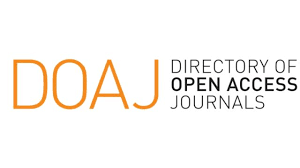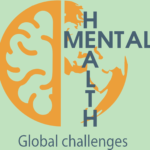Well-being of mental health workers during the Russian-Ukrainian War
DOI:
https://doi.org/10.56508/mhgcj.v7i1.189Keywords:
well-being, mental health, war, epidemiology, mental health professionalsAbstract
Introduction: While the detrimental impact of the Russian-Ukrainian War on mental health of Ukrainian population has been well-documented, less attention has been given to mental health workers (MHWs) providing mental health support services amid the war.
Purpose: To examine levels of domain-specific well-being in Ukrainian MHWs; identify and quantify the relative importance of factors associated with well-being; and examine interactions of risk and protective factors in relation to each well-being domain.
Methodology: A convenience sample of 178 MHWs completed a survey that assessed their well-being, and sociodemographic, war-related, mental health, and psychosocial characteristics.
Results: Lower levels of mental health difficulties such as anxiety and posttraumatic stress symptoms, and higher levels of psychosocial factors such as higher optimism, gratitude, and presence and search for meaning were associated with higher well-being. MHWs with high levels of protective psychosocial factors were more likely to report higher well-being even in the presence of mental health difficulties.
Conclusions: Results of this study provide insight into the levels and correlates of multiple well-being domains among Ukrainian MHWs amid the ongoing war. They further suggest that interventions to mitigate mental health difficulties and bolster protective psychosocial factors may help promote well-being in this population
References
Al Hariri, M., Hamade, B., Bizri, M., Salman, O., Tamim, H., & Al Jalbout, N. (2022). Psychological impact of COVID-19 on emergency department healthcare workers in a tertiary care center during a national economic crisis. American Journal of Emergency Medicine, 51, 342-347. https://doi.org/10.1016/j.ajem.2021.10.055 DOI: https://doi.org/10.1016/j.ajem.2021.10.055
Altura, K. C., Patten, S. B., Fiest, K. M., Atta, C., Bulloch, A. G., & Jette, N. (2016). Suicidal ideation in persons with neurological conditions: Prevalence, associations and validation of the PHQ-9 for suicidal ideation. General Hospital Psychiatry, 42, 22-26. https://doi.org/10.1016/j.genhosppsych.2016.06.006 DOI: https://doi.org/10.1016/j.genhosppsych.2016.06.006
Awan, S., Diwan, M. N., Aamir, A., Allahuddin, Z., Irfan, M., Carano, A., Vellante, F., Ventriglio, A., Fornaro, M., Valchera, A., Pettorruso, M., Martinotti, G., Di Giannantonio, M., Ullah, I., & De Berardis, D. (2021). Suicide in healthcare workers: Determinants, challenges, and the impact of COVID-19. Frontiers in Psychiatry, 12, 792925. https://doi.org/10.3389/fpsyt.2021.792925 DOI: https://doi.org/10.3389/fpsyt.2021.792925
Ben-Ezra, M., Goodwin, R., Leshem, E., & Hamama-Raz, Y. (2023). PTSD symptoms among civilians being displaced inside and outside the Ukraine during the 2022 Russian invasion. Psychiatry Research, 320, 115011. https://doi.org/10.1016/j.psychres.2022.115011 DOI: https://doi.org/10.1016/j.psychres.2022.115011
Czyzowska, N., & Gurba, E. (2021). Enhancing meaning in life and psychological well-being among a European cohort of young adults via a gratitude intervention. Frontiers in Psychology, 12, 751081. https://doi.org/10.3389/fpsyg.2021.751081 DOI: https://doi.org/10.3389/fpsyg.2021.751081
Geier, T. J., Hunt, J. C., Hanson, J. L., Heyrman, K., Larsen, S. E., Brasel, K. J., & deRoon-Cassini, T. A. (2020). Validation of abbreviated four- and eight-item versions of the PTSD Checklist for DSM-5 in a traumatically injured sample. Journal of Traumatic Stress, 33(3), 218-226. https://doi.org/10.1002/jts.22478 DOI: https://doi.org/10.1002/jts.22478
Inter-Agency Standing Committee. (2007). IASC guidelines on mental health and psychosocial support in emergency settings.
Kang, H., Esterlis, I., Chobanian, A. V., Boriak, O., Pietrzak, R. H., & Vus, V. (2023). Perceived mental health of psychosocial support professionals in Ukraine. Psychiatry Research, 326, 115320. https://doi.org/10.1016/j.psychres.2023.115320 DOI: https://doi.org/10.1016/j.psychres.2023.115320
Kroenke, K., Spitzer, R. L., & Williams, J. B. (2003). The Patient Health Questionnaire-2: Validity of a two-item depression screener. Medical Care, 41(11), 1284-1292. https://doi.org/10.1097/01.MLR.0000093487.78664.3C DOI: https://doi.org/10.1097/01.MLR.0000093487.78664.3C
Litz, B. T. (2014). Resilience in the aftermath of war trauma: A critical review and commentary. Interface Focus, 4(5), 20140008. https://doi.org/10.1098/rsfs.2014.0008 DOI: https://doi.org/10.1098/rsfs.2014.0008
Lushchak, O., Velykodna, M., Bolman, S., Strilbytska, O., Berezovskyi, V., & Storey, K. B. (2024). Prevalence of stress, anxiety, and symptoms of post-traumatic stress disorder among Ukrainians after the first year of Russian invasion: A nationwide cross-sectional study. The Lancet Regional Health – Europe, 36, 100773. https://doi.org/10.1016/j.lanepe.2023.100773 DOI: https://doi.org/10.1016/j.lanepe.2023.100773
McCullough, M. E., Emmons, R. A., & Tsang, J. A. (2002). The grateful disposition: A conceptual and empirical topography. Journal of Personality and Social Psychology, 82(1), 112-127. https://doi.org/10.1037//0022-3514.82.1.112 DOI: https://doi.org/10.1037//0022-3514.82.1.112
Osokina, O., Silwal, S., Bohdanova, T., Hodes, M., Sourander, A., & Skokauskas, N. (2023). Impact of the Russian invasion on mental health of adolescents in Ukraine. Journal of the American Academy of Child & Adolescent Psychiatry, 62(3), 335-343. https://doi.org/10.1016/j.jaac.2022.07.845 DOI: https://doi.org/10.1016/j.jaac.2022.07.845
Ostafin, B. D., & Proulx, T. (2020). Meaning in life and resilience to stressors. Anxiety, Stress, & Coping, 33(6), 603-622. https://doi.org/10.1080/10615806.2020.1800655 DOI: https://doi.org/10.1080/10615806.2020.1800655
Pavlova, I., Graf-Vlachy, L., Petrytsa, P., Wang, S., & Zhang, S. X. (2022). Early evidence on the mental health of Ukrainian civilian and professional combatants during the Russian invasion. European Psychiatry, 65(1), e79. https://doi.org/10.1192/j.eurpsy.2022.2335 DOI: https://doi.org/10.1192/j.eurpsy.2022.2335
Pinchuk, I., Goto, R., Pimenova, N., Kolodezhny, O., Guerrero, A. P. S., & Skokauskas, N. (2022). Mental health of helpline staff in Ukraine during the 2022 Russian invasion. European Psychiatry, 65(1), e45. https://doi.org/10.1192/j.eurpsy.2022.2306 DOI: https://doi.org/10.1192/j.eurpsy.2022.2306
Rosales Vaca, K. M., Cruz Barrientos, O. I., Giron Lopez, S., Noriega, S., More Arias, A., Guariente, S. M. M., & Zazula, R. (2022). Mental health of healthcare workers of Latin American countries: A review of studies published during the first year of COVID-19 pandemic. Psychiatry Research, 311, 114501. https://doi.org/10.1016/j.psychres.2022.114501 DOI: https://doi.org/10.1016/j.psychres.2022.114501
Sapra, A., Bhandari, P., Sharma, S., Chanpura, T., & Lopp, L. (2020). Using Generalized Anxiety Disorder-2 (GAD-2) and GAD-7 in a primary care setting. Cureus, 12(5), e8224. https://doi.org/10.7759/cureus.8224 DOI: https://doi.org/10.7759/cureus.8224
Scheier, M. F., Carver, C. S., & Bridges, M. W. (1994). Distinguishing optimism from neuroticism (and trait anxiety, self-mastery, and self-esteem): A reevaluation of the Life Orientation Test. Journal of Personality and Social Psychology, 67(6), 1063-1078. https://doi.org/10.1037//0022-3514.67.6.1063 DOI: https://doi.org/10.1037//0022-3514.67.6.1063
Steger, M. F., Frazier, P., Oishi, S., & Kaler, M. (2006). The meaning in life questionnaire: Assessing the presence of and search for meaning in life. Journal of Counseling Psychology, 53(1), 80-93. https://doi.org/10.1037/0022-0167.53.1.80 DOI: https://doi.org/10.1037/0022-0167.53.1.80
Tonidandel, S., & LeBreton, J. M. (2011). Relative importance analysis: A useful supplement to regression analysis. Journal of Business and Psychology, 26(1), 1-9. DOI: https://doi.org/10.1007/s10869-010-9204-3
van Agteren, J., Bartholomaeus, J., Steains, E., Lo, L., & Gerace, A. (2021). Using a technology-based meaning and purpose intervention to improve well-being: A randomised controlled study. Journal of Happiness Studies, 22, 3571-3591. https://doi.org/10.1007/s10902-021-00383-4 DOI: https://doi.org/10.1007/s10902-021-00383-4
VanderWeele, T. J. (2017). On the promotion of human flourishing. Proceedings of the National Academy of Sciences, 114(31), 8148-8156. https://doi.org/10.1073/pnas.1702996114 DOI: https://doi.org/10.1073/pnas.1702996114
West, C. P., Dyrbye, L. N., Satele, D. V., Sloan, J. A., & Shanafelt, T. D. (2012). Concurrent validity of single-item measures of emotional exhaustion and depersonalization in burnout assessment. Journal of General Internal Medicine, 27(11), 1445-1452. https://doi.org/10.1007/s11606-012-2015-7 DOI: https://doi.org/10.1007/s11606-012-2015-7

Published
How to Cite
Issue
Section
License
Copyright (c) 2024 Hun Kang, Ian C. Fischer, Viktor Vus, Anna Chobanian, Alla Kolyshkina, Liudmyla Ponomarenko, Irina Esterlis, Robert H. Pietrzak

This work is licensed under a Creative Commons Attribution-NonCommercial 4.0 International License.








 E-mail us: viktor.vus@mhgcj.org
E-mail us: viktor.vus@mhgcj.org 